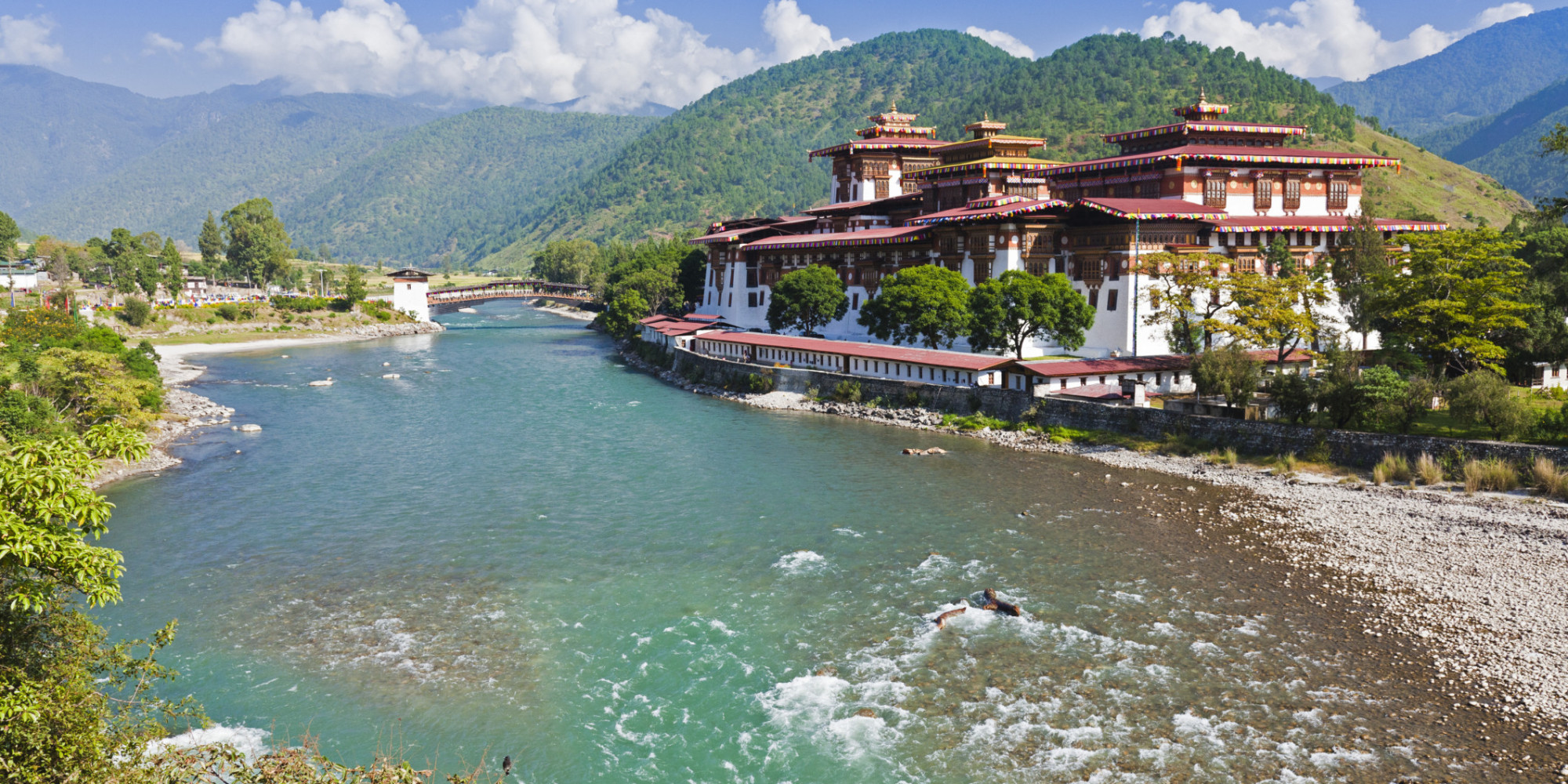A door swings open. The wheels are turning hot. You know you can’t be standing on the kerb for too long. It’s either here or there. The last minute call sounds more jarring than anything that you have ever heard. If only you had a few more minutes to decide!
But then, when you get the chance to board a Time Machine, you can’t be crawling to its door-knob. You just have to get a wiggle on and step forth. And then, everything that you ever knew about the 21st century starts melting into thin air.
Thin air, dense mountains, an endless blanket of green all around you, the hypnotic sounds of monastery bells wafting from a distant hill, those things called trees that are almost as rare as dinosaurs emerge suddenly dappled all across your eye sight as you approach this gossamer kingdom. The moment you set your feet on this soft carpet, you notice another extinct thing – it’s strewn inexpensively on the faces of people here – it’s something that even archeologists keep looking for – a genuine smile.
Yes, it has to be Bhutan. If a place ascertains its progress with the metric of Gross Happiness (which was, by the way, coined as early as the 1970s here) instead of GDP, there has to be something strange about it after all. What can actually manufacture happiness in a world where no one has the time to even contemplate when was the last time they smiled?
But this is not the same world or the same era we have been born or living in. It’s Bhutan. Time slows down here. In a deliberate motion.
People live here by the rhythm which elements of nature set, so it can be pretty hard to tune in to the clock called sun and the dial called moon when all your life you have paced to and fro every day sitting on a ticking bomb.
 One eats slowly so you may finally discover that swallowing food is almost like a sin. One sleeps like one is supposed to sleep. One stops by and takes time to give a proper look at flowers, trees, bees, birds, to the people in your life and the person who used to be -you.
One eats slowly so you may finally discover that swallowing food is almost like a sin. One sleeps like one is supposed to sleep. One stops by and takes time to give a proper look at flowers, trees, bees, birds, to the people in your life and the person who used to be -you.
Enveloped within sprawling meadows, and cradled with the mystical sounds of rivers that gallop carelessly amidst the awe-striking Himalayas; you may find the sudden burst of beauty in its most vivid and natural form – so splendid that it’s surreal. After all, there’s not much left back in the cities we hail from. There’s not much that we have left to be left.
The people and government of Bhutan have taken a different tangent to the world development though. They have picked up what’s still left. That explains why this place is developing in the right vein, even though almost against the current which other countries are taking. Taking a vow to become 100 per cent organic, or measuring growth through people’s well being, environmental progress and education instead of money spent on good or possessions is what sets this nation apart.
Here sustainability is not something to be put in a brochure. It’s a habit, a reflex for people no matter what they are doing – growing food, harvesting it, transporting it, hawking it, storing it, cooking it, eating it and wrapping it up. It is as visible in the quintessentially Bhutanese dzong architecture as it is in the way the country looks at eco-tourism.
People here throb with the same wisdom that we urban nomads have been wandering so long for. Being happy is not something that takes huge climate change conferences or geo-political chess-boards or factories. Being happy is not about the size of your cubicle, your porch, your name plate, your garage or your city’s flyovers. It’s about something else – that is as evasive as it is simple.
Everyone is a monk in Bhutan in some sense – filled with something mysterious they know, that floats in the air around them, in the way they walk across a rice paddy, converse, smile or simply sit down near a meandering brook. They know how to be happy. For they know how to be content.
You can’t pick that recipe by reading a book or a travelogue at all. You have to go there to find out for yourself. But then, it’s like jumping into a time-warp. Would you be able to leave the 21st century behind. For the 15th? Or who knows, if it’s the 25th?
– Pratima H










Recent Comments